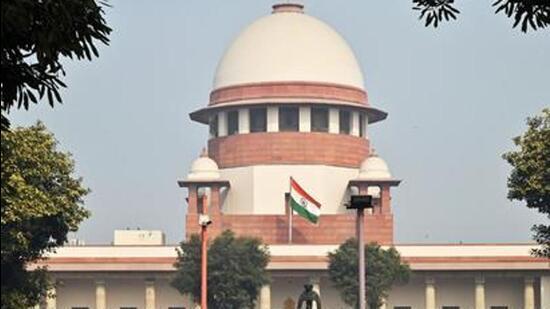
Calling someone ‘Miyan-Tiyan’ & ‘Pakistani’ not an offence: Supreme Court
In a recent ruling, the Supreme Court of India has clarified that calling someone “Miyan-Tiyan” and “Pakistani” is not considered an offence. The court’s decision came in response to a case filed against an 80-year-old man who was accused of hurling abuses at an Urdu translator in Jharkhand. While the court acknowledged that such remarks might be considered in poor taste, it did not constitute an act that hurt religious sentiments or was criminal in nature.
The incident in question took place in Ranchi, Jharkhand, where the 80-year-old man allegedly used derogatory language against an Urdu translator. The translator, who was reportedly offended by the remarks, filed a complaint with the police, leading to the case being registered under Section 294 of the Indian Penal Code (IPC), which pertains to obscenity or annoyance.
The case eventually reached the Supreme Court, where the court was asked to examine whether the remarks constituted an offence under the IPC. In its ruling, the court held that the remarks, while unpalatable and in poor taste, did not amount to hurting religious sentiments. The court further noted that the accused man’s intention was not to offend anyone’s religious beliefs, but rather to cause annoyance or insult.
The Supreme Court’s decision has sparked debate and raised important questions about the limits of free speech in India. While the court’s ruling acknowledges that the remarks were inappropriate, it also underscores the importance of protecting religious sentiments and ensuring that public discourse remains respectful and inclusive.
In its ruling, the Supreme Court cited the Constitution of India, which guarantees freedom of speech and expression to all citizens. However, the court also noted that this freedom is not absolute and is subject to certain limitations and restrictions. The court further emphasized that while the remarks in question were offensive and in poor taste, they did not constitute a hate crime or an act of religious intolerance.
The Supreme Court’s decision has implications for public discourse and the way we engage with each other in our daily lives. The ruling suggests that while we should strive to be respectful and courteous in our interactions with others, we cannot be held liable for every perceived slight or unintended offense. At the same time, the court’s decision underscores the importance of being mindful of the language we use and the impact it can have on others.
The case highlights the need for greater sensitivity and understanding in our interactions with people from different backgrounds and beliefs. It also underscores the importance of promoting a culture of tolerance and respect, where people feel comfortable sharing their beliefs and opinions without fear of persecution or reprisal.
In conclusion, the Supreme Court’s decision is a welcome development that acknowledges the importance of free speech while also promoting a culture of respect and inclusivity. The ruling reminds us that while we should strive to be respectful and courteous in our interactions with others, we cannot be held liable for every perceived slight or unintended offense. As we navigate the complexities of public discourse in India, we must remain mindful of the importance of promoting a culture of tolerance and respect, where people feel comfortable sharing their beliefs and opinions without fear of persecution or reprisal.






